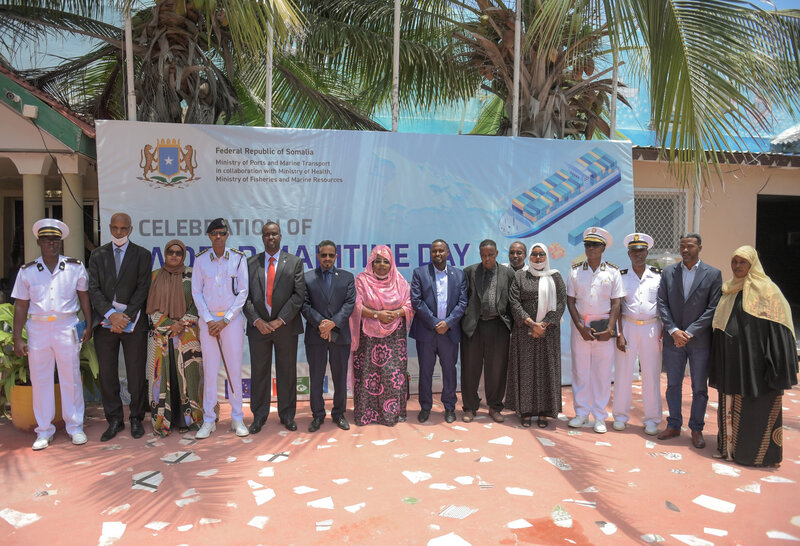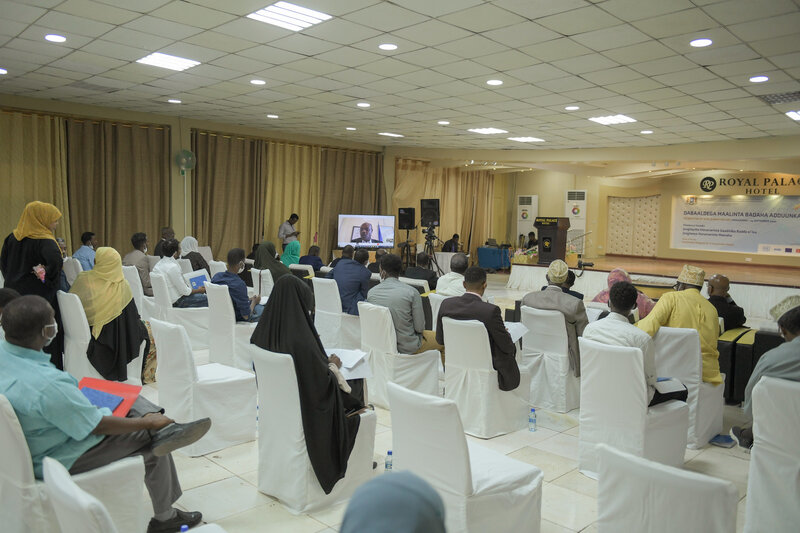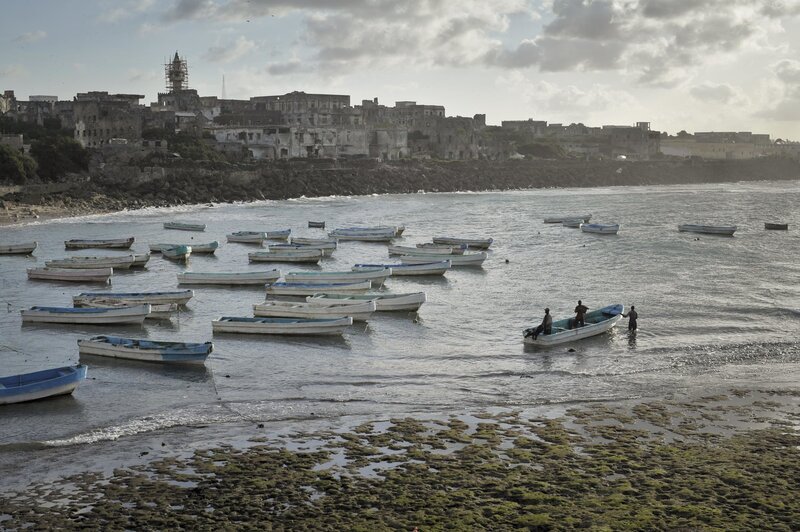Somalia Observes Maritime Sector Role in Post-Covid-19 Economic Recovery

Somalia marks World Maritime Day
Mogadishu – With its key location along main international shipping routes and 3,300 kilometres of coastline, Somalia’s potential as a key maritime player came to the fore recently as it marked World Maritime Day.
“The fact that its waters are located at the geo-strategic convergence of some of the world’s most important international shipping lanes, means that Somalia has a significant role to play in relation to this year’s World Maritime Day theme,” said the United Nations Deputy Special Representative of the Secretary-General for Somalia, Adam Abdelmoula.

Mr. Abdelmoula, who is also the UN Resident Coordinator and Humanitarian Coordinator for Somalia, was addressing, via video, a one-day conference in the capital city, Mogadishu, which brought together stakeholders in Somalia’s maritime sector under this year’s World Maritime Day theme of ‘Sustainable Shipping for a Sustainable Planet.’
Organized by the federal Ministry of Ports and Marine Transport in collaboration with the UN Assistance Mission in Somalia (UNSOM), the meeting discussed strategies to develop country’s maritime industry and shipping, fisheries, maritime security, and to support gender equality and women empowerment in the sector.
Post-COVID-19
In his remarks, Mr. Abdelmoula also underscored the maritime sector’s role in facilitating global trade despite the adverse impact of the COVID-19 pandemic on the global economy, and called on Somalia’s international partners to support the country’s re-emerging maritime sector.
The federal Minister of Ports and Marine Transport, Mariam Aweis Jama, noted that the implementation of tax waivers for shippers importing essential commodities such as food, medicines and fuel is an important measure taken to mitigate the economic repercussions of the COVID-19 pandemic.

“The pandemic has shown that shipping, the most reliable, efficient and cost-effective method of international transportation that carries more than 80 per cent of global trade, remains the leading facilitator of the global economy,” Ms. Jama said. “Therefore, shipping and maritime will be at the heart of the economic recovery and future sustainable growth.”
Somalia’s progress
At the meeting, attendees took the opportunity to reflect on the objectives of establishing the International Maritime Organization in 1958, noting Somalia’s progress to build its maritime institutional capacity in line with its National Development Plan and to achieve the UN Sustainable Development Goals by 2030.
With support from the UN and international partners, Somalia has established the Somali Maritime Administration, which will become operational by the end of this year. The country has also assented to the International Convention for the Prevention of Pollution from Ships and the Safety of Life at Sea Convention and the UN Convention on Law of the Seas, as well as enacted laws and policies to regulate the maritime sector.
“The work undertaken earlier this year on the draft Shipping Code, having last been amended in 1988, has also paved the way for the establishment of a legislative framework, wherein Somalia can serve as a preferred port of destination and registration for ships,” noted Mr. Abdelmoula.

Daily life
Beyond the strategic policy discussions, Somalia’s maritime domain remains equally important in the daily lives of its people, who get actively involved in efforts to preserve and benefit from it.
In his remarks at the event, Abdihakim Ahmed Abdi, a member of the Mogadishu Beach Cleanup Youth Club, a volunteer organization that mobilizes citizens to clean up the capital city’s beaches and sensitizes the public against marine pollution, urged Somalis and especially youth to tap into the resources offered by Somalia’s long and rich coastline.
“Today is an important day for Somali youth and the public because we celebrate World Maritime Day. It is an opportunity to remind us that we have the longest coastline in Africa and that our ocean has huge marine resources that we can exploit,” said Mr. Abdi, after a panel discussion focused on marine sector opportunities and challenges.
The meeting brought together officials of the federal Ministry of Health as well as the Federal Member States of Hirshabelle, Galmudug, Puntland, South West State and Jubbaland, and representatives of the European Union, World Food Programme (WFP), Food and Agriculture Organization (FAO), and International Maritime Organization (IMO).
Observed annually on 24 September, World Maritime Day aims to highlight the importance of international shipping, which involves the transport of more than 80 per cent of global trade to peoples and communities all over the world and how much the world relies on a safe, secure and efficient international shipping industry, which is an essential component of any programme for future sustainable green economic growth in a sustainable manner.
Link to original story.




